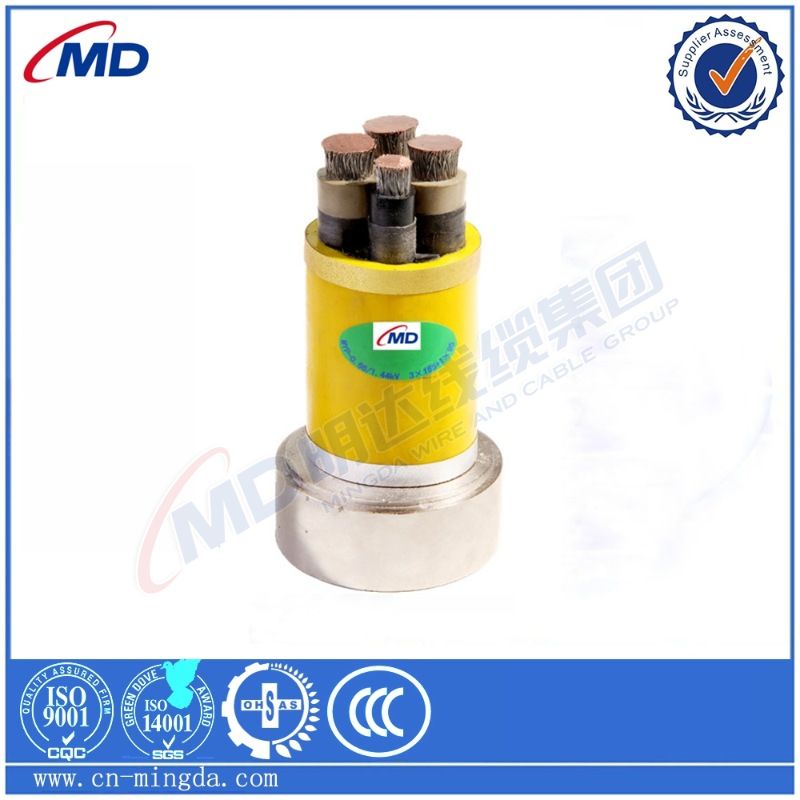Nov . 06, 2024 11:48 Back to list
Actuated Control Systems for Gate Valves in Industrial Applications and Automation
Understanding Actuated Gate Valves Features, Applications, and Benefits
Actuated gate valves are a critical component in various industrial systems, playing a crucial role in managing the flow of liquids and gases. These valves employ an actuator mechanism to facilitate movement, making them more efficient and reliable than their manual counterparts. This article explores the features, applications, and benefits of actuated gate valves, shedding light on why they are becoming increasingly popular across multiple industries.
Features of Actuated Gate Valves
At its core, a gate valve allows for the full and unobstructed flow of media when it is fully open. The key distinguishing feature of an actuated gate valve is its integrated actuator, which can be pneumatic, electric, or hydraulic. This automation allows for remote operation and precise control over the opening and closing of the valve, which is particularly beneficial in complex systems requiring frequent adjustments.
Actuated gate valves are typically designed with robust materials such as stainless steel or carbon steel, providing durability and resistance to corrosion. They often come with various sealing options, enabling them to handle a wide range of temperatures and pressures. Additionally, many actuated gate valves are equipped with fail-safe features and position indicators, ensuring safety and allowing for easy monitoring of valve status.
Applications of Actuated Gate Valves
Actuated gate valves find applications across a myriad of industries. In the oil and gas sector, they are employed for pipeline management, controlling the flow of crude oil, natural gas, and other fluids. Their ability to open or close quickly under high-pressure conditions makes them essential for maintaining system integrity and safety.
In water treatment facilities, actuated gate valves help regulate the flow of water through various stages of treatment. They facilitate efficient management of resources, ensuring that processes run smoothly and effectively. Similarly, in power plants, they are used in cooling water systems and fuel supply lines.
actuated gate valve

The chemical processing industry also relies on actuated gate valves, where they can handle corrosive substances and maintain precise control over chemical reactions. Furthermore, in HVAC (Heating, Ventilation, and Air Conditioning) systems, these valves are vital for controlling airflow and maintaining desired environmental conditions.
Benefits of Using Actuated Gate Valves
The adoption of actuated gate valves offers several advantages. First and foremost is the improved efficiency of operations. Automation reduces the need for manual intervention, leading to quicker response times and minimized downtime. This is vital in industries where time is of the essence and delays can lead to significant financial losses.
In addition to efficiency, safety is enhanced with actuated gate valves. Automated systems can be designed to shut down in emergencies, reducing the risk of accidents and environmental hazards. Furthermore, the ability to monitor valve status remotely ensures that operators are always aware of the system's functioning, allowing for proactive maintenance.
Another significant benefit is the scalability of operation. Actuated gate valves can be integrated into larger control systems, allowing for centralized management of multiple valves across vast networks. This integration is particularly valuable in complex industrial environments where systems can become cumbersome.
Conclusion
Actuated gate valves are an essential element in modern industrial applications, providing a combination of efficiency, safety, and control. Their ability to automate the opening and closing process has transformed the way industries manage flow, leading to significant improvements in operational performance. As technology continues to evolve, the role of actuated gate valves is expected to grow, reinforcing their importance in effective resource management and system integrity across various sectors. Adopting these advanced valves is not just a matter of preference; it's a vital step toward achieving higher standards of safety and efficiency in industrial operations.
Share
-
Reliable Wafer Type Butterfly Valves for Every IndustryNewsJul.25,2025
-
Reliable Flow Control Begins with the Right Ball Check ValveNewsJul.25,2025
-
Precision Flow Control Starts with Quality ValvesNewsJul.25,2025
-
Industrial Flow Control ReliabilityNewsJul.25,2025
-
Engineered for Efficiency Gate Valves That Power Industrial PerformanceNewsJul.25,2025
-
Empowering Infrastructure Through Quality ManufacturingNewsJul.25,2025